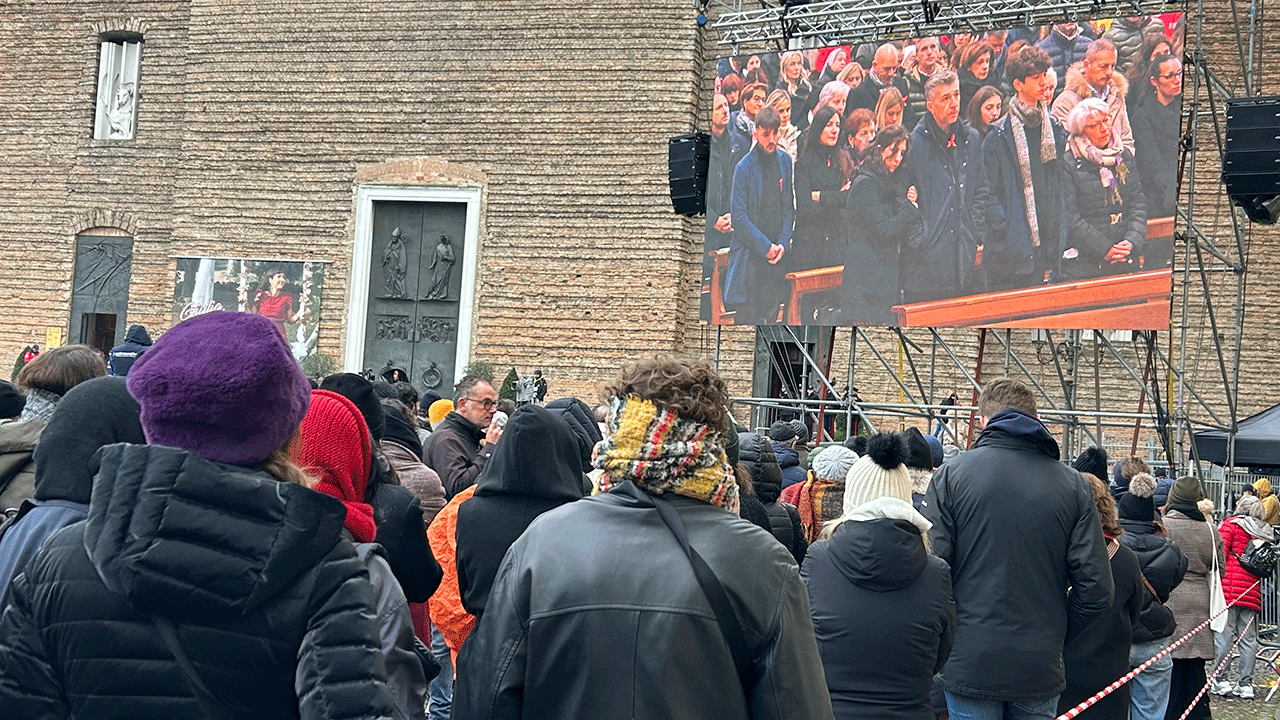Fox News Flash top headlines for December 5
Fox News Flash top headlines are here. Check out what's clicking on Foxnews.com.
- Giulia Cecchetin, a 22-year-old woman, was murdered, and her death has sparked outrage against gender violence in Italy.
- The murder took place on Nov. 18, and Cecchetin's ex-boyfriend was later arrested in Germany. He admitted to the crime during prosecutors' questioning.
- Thousands of mourners gathered for her funeral in Padua, where her father called for men to be "agents of change" in a culture that he says undervalues women's lives.
The father of a young woman whose murder galvanized Italian outrage against violence targeting women implored men during her funeral Tuesday in the northern city of Padua to be "agents of change" to a culture that often "undervalues the lives of women."
Outside, thousands of mourners rang bells and shook keys, part of a campaign to "make noise" against gender violence that has grown in intensity in the weeks since 22-year-old Giulia Cecchetin was found dead, her throat slit, in a ditch in a remote area of the Alpine foothills on Nov. 18. She had disappeared along with her ex-boyfriend a week earlier after meeting him for a burger.
MASS PROTESTS ERUPT ACROSS ITALY AFTER EXTRADITION OF COLLEGE STUDENT'S SUSPECTED KILLER
Filippo Turetta, 21, was later arrested in Germany, and is being held in an Italian jail during an investigation to bring charges. Turetta has not commented publicly, but his lawyer told reporters that he admitted to the crime under prosecutors’ questioning.

People watch Giulia Cecchettin's funeral on screen outside the Church of Santa Giustina in Padua, Italy, on Dec. 5, 2023. Mourners gathered at the Church of San Giustina in Padua for the funeral of Giulia Cecchettin, the 22-year-old killed by her former boyfriend, 21-year-old Filippo Turetta, on Nov. 11. (Lucrezia Granzetti/LaPresse via AP)
Cecchetin is among 102 women murdered through mid-November this year in Italy, more than half by current or former intimate partners, according to the Interior Ministry.
HOUSE VOTES TO REAUTHORIZE VIOLENCE AGAINST WOMEN ACT
Some 10,000 mourners, including Italy’s justice minister, gathered for Cecchetin’s funeral Mass at Padua’s Santa Giustina cathedral, many thousands spilling out into the piazza. Many wore ribbons representing the campaign to stop femicide, the killing of women.
"Femicide often results from a culture that devalues the lives of women, victims of those that should have loved them. Instead, they were harassed, forced into long periods of abuse until they completely lose their liberty, before they also lose their lives,’’ the young woman’s father, Gino Cecchetin, told mourners. "How could all of this happen? How could this have happened to Giulia?"
He called on families, schools, civil society and the media to "break a cycle."
"I turn first to men, because we should first demonstrate to be agents of change against gender violence,’’ the father said, urging men to listen to women and not turn away from any signs of violence, "even the slightest."
He remembered his daughter as "an extraordinary young woman. Happy. Lively. Never tired of learning,’’ who stepped in to take over household duties, alongside university studies, after her mother died of cancer last year.
She will soon be posthumously awarded a degree in bioengineering, which she had recently completed at the prestigious University of Padua.
The university suspended all classes until 2 p.m. for the funeral and the Veneto regional governor declared a day of mourning in the region, with flags flying at half-staff.
SURGE OF TEEN GIRLS EXPERIENCING SEXUAL VIOLENCE IS 'DRAMATIC,' WITH OFFICIALS CALLING IT A 'CRISIS'
The father was joined by Giulia’s older sister Elena and younger brother Davide in the cathedral's front row; notably, all the readings and hymns were led by young women. During the ceremony, Giulia's father embraced Justice Minister Carlo Nordio, regional Gov. Luca Zaia and a contingent of local mayors.
As he left the cathedral, Zaia told regional broadcaster TG Veneto that schools should be reading the father's eulogy, which commentators noted didn’t just mourn Cecchetin but offered a pathway to change.
There are no comprehensive statistics on the prevalence of gender-based violence against women in the EU, given the difference in legal definitions and data collection systems.
The European Institute of Gender Equality, however, estimated that in 2017, 29% of intentional female homicides in the EU were of women who were victims of their intimate partners. In Italy, the percentage was 43.9%, according to the institute.

